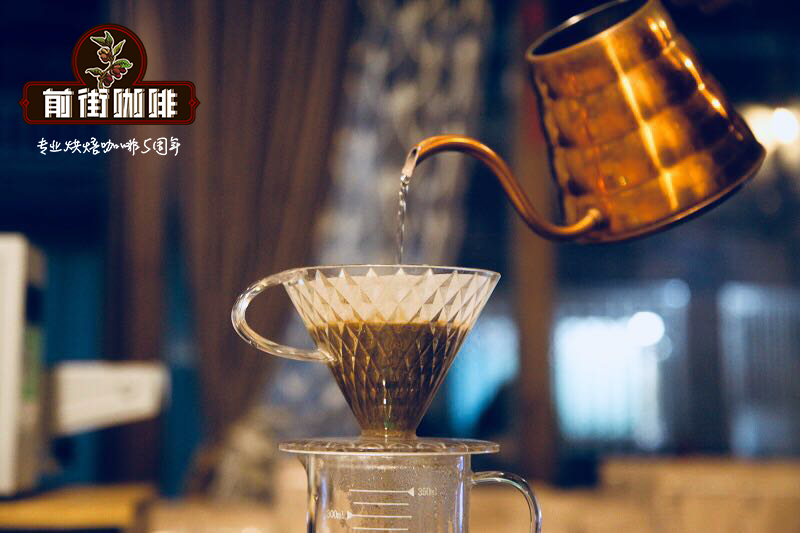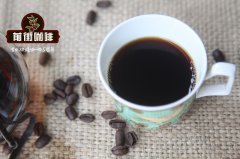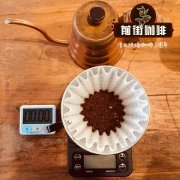Panamanian Emerald Manor Haramiyou introduces how Panamanian roses are baked?

Professional coffee knowledge exchange More coffee bean information Please pay attention to coffee workshop (Weixin Official Accounts cafe_style)
Café de Rosedale was celebrated on his estate in Panama, but he was the story of an alien prince who succeeded in becoming the new king. The rosewood coffee tree was discovered in Ethiopia and later transferred by the Coffee Research Institute in Kenya to many African countries such as Uganda and Tanzania, where it was not valued but used for research.
Later, after someone introduced rose summer coffee to Costa Rica, through Don Pachi Manor, rose summer coffee was brought to Panama. Each manor could see some rose summer trees, because they were used as windbreaks for coffee trees. Yes, you are right. The yield of rose summer trees is not stable, and they are often mixed with ordinary coffee beans. It is not a main coffee bean project. It wasn't until about 2000 AD that a manor discovered that the taste of rose summer was actually very delicious, and it was not sure whether this taste would appeal to the discerning coffee lover.
No one expected that the roses transplanted to Panama would find the ideal place to grow. If planted below 1400 meters, rose summer not only low yield, but also poor flavor, must be planted at high altitude in order to play rose summer flavor.
Haramiu had been under several different owners before, and Peterson had no idea of the variety of coffee varieties in the garden when he bought the estate. Later, he learned from Don Pachi Serracin, the owner of Don Pachi Manor, that Haramiu had a variety introduced by Serracin, which had disease resistance. Two years later, in 1998, Price Peterson decided to plant this little-known variety on a new estate of about 50 hectares, a bold decision at the time.
The replanted trees produced their first cherries in 2002 and their first harvest in 2003, and the Petersons won the 2004 Best Panama contest the following year. Willem Boot, one of the judges, gave himself an incredible 94 points after the cup test, and 14 of the 15 judges were completely impressed by this unheard of summer. Before that, Emerald Manor beans sold for $1.20 a pound. Peterson later recalled that before bidding, he expected to sell the bean for a record $7 based on the high jury score. As the bid continued to rise, he thought hackers were playing a joke on them. The final auction price was $21 a pound.
In fact, that was the beginning of the Golden Age of Rose, with $21 the lowest price ever paid for the "Best of Panama" first prize, a record of $350 in 2013 and $140 in 2015. Rachel Peterson told Australia's The BeanScene magazine last year that Rose's discovery was "pure luck, maybe with a little effort." We were lucky enough to buy an estate that was originally a summer rose tree, lucky enough to replant this mysterious variety and grow it very well, lucky enough to have the right rainfall and high altitude for summer roses to thrive. All that can be said is that we are lucky."
Haramillo was luck, but that "little effort" changed the entire specialty coffee industry.
In 2014, the 10th anniversary of Best Panama, Robert Thoresen, founder of Norway Kaffa, wrote a long article reminding us of this case. When Rosedale started cherries in 2002, Peterson Rachel's brother Daniel decided to systematically test the flavor of the coffee on the estate."It was absolutely new at the time to carefully distinguish the varieties from the beginning of harvest, to distinguish the different blocks, to distinguish the cherry batches from the different days, and then to test them all separately in cups." Thoresen emphasizes that with this methodology, the uniqueness of Rose Summer is truly obtained. Daniel Peterson finally found the most delicious cherries in the high-altitude valley (1500- 1650 m) of Hallameo. As for the summer roses in other places, even if they are also summer roses, their flavor is far less than that of this special area, and they account for only about 3% of all Hallameo summer roses.
But even the rose summer flavor, at first let everyone disbelief, in 2012, Daniel in Paris a public speech about the rose summer flavor: "blueberry, orange, strong jasmine flowers, these are definitely not Panamanian traditional coffee flavor." He himself initially suspected that there was a flaw in the processing that caused the smell, and Willem Boot, a 2004 judge, thought the Ethiopian beans had been placed on the cup table by mistake. We can also add strong citrus flavor, pineapple, mango and other tropical fruit flavors to the flavor spectrum of rose summer. The body of rose summer is not heavy, but the aftertaste that does not hinder drinking remains on the tip of the tongue for a long time. If it is not for a cup of wine, the rose summer after cooling is more charming.
With the advent of rose summer, variety suddenly became the primary consideration."It was no longer enough to talk about terroir, because variety may make greater differences." Thoresen said.
At the same time, the distinction between batches is becoming more and more precise. Even for Emerald Manor, Daniel had initially mixed all the lots in the garden and selected the best ones, so in a way Daniel had "created" the final flavor of Halameu. Emerald had won the championship every year from 2004 to 2007, proving that this strategy worked. But bean bakers, including Thoresen, want to be able to cup different batches of harami in person, and then let the baker decide which batch he likes.
Finally, the Peterson family accepted the advice of the fine coffee community and began to divide batches by block and harvest time. Starting in 2008, Emerald Estate started its own online bidding. The bidding batches in 2009 and 2010 were already marked with different block codes within Halameu, such as Mario, which stands for elevation 1500 - 1650 meters.
The one constant is Halameo. To this day, the Emerald Manor summer batch that competes in the "Best Panama" bid is still called Halameo.
In addition to altitude, Poquet's terrain and climate are quite special, just in Panama's Central Mountain (Cordillera Central), the eastern part of the Central Mountain extends from Costa Rica to the Panama Canal, and the highest point is Baru volcano. The climate conditions of the north and south foothills are completely different. The north is the Atlantic Ocean, with no shortage of cold wind and rain. The south foothills face the Pacific Ocean. The climate is dry and warm, with rainfall ranging from 1500mm to 5000mm a year. Different terrains and altitudes also vary greatly. The harvest season can extend from December to May due to the length of the ripening period. Denmark's famous bean baker Coffee Collective once visited Emerald Manor and found that the mountain wind was strong. The manor planted rows of windbreaks. The wind coming through the trees was still very amazing. The general varieties could not stand the wind.
No wonder Jamaica, Brazil, and Colombia have all been planted with rosewood trees, but Panama's Poquete has grown amazing coffee for the first time.
But the most intriguing aspect of the whole affair, from the time Don Pache returned home with Crescia in 1963 until his rediscovery in 2004, was that Crescia had planted trees on many estates in Poquet for forty years, including Pache Shelaqing himself, who had brought back saplings to give to his fellow farmers. His own estate, Don Patchi, is high enough, at over 1600 metres above sea level. In 2005, the year after Rose won Best Panama, Don Pache also competed with Rose from his own estate, easily finishing second, behind Haramillo.
If he wanted to fully reveal his personality, he would have to work hard on baking. Rose summer is generally planted at a high altitude of more than 1500 meters. What we get from Front Street Coffee is 1700m hardness and high density beans, which are full in shape, medium in particle size, thick and long in body, and pointed at both ends.
In order to highlight the characteristics and aroma of this bean, Qianjie Coffee uses light roasting, so that the roasting degree can give full play to the characteristics of the bean itself, too deep will lose the flower aroma and fruit acid, of course, this should also be adjusted according to the characteristics of the coffee bean and the understanding of the roaster for the bean itself.
Front Street in the baking process should pay attention to, rose summer baking curve should not be too long, otherwise the flavor will be rigid. After a burst should not be too high temperature rise, rose summer two sharp, easy to have black focus, 6 degrees below the temperature rise will be better, shallow baking more revealing tea rose aroma.
Front Street Brewing Suggestion Parameters:
Cake Cup/91℃/1:15/Time 2 10"
Flavor: rose tea, citrus, jasmine, sucrose, green tea, etc.
Important Notice :
前街咖啡 FrontStreet Coffee has moved to new addredd:
FrontStreet Coffee Address: 315,Donghua East Road,GuangZhou
Tel:020 38364473
- Prev

How should the rosy summer of Panama be baked? Why is the price of Panamanian summer so high?
For more information on coffee beans, please follow the coffee workshop (Wechat official account cafe_style) A variety of Typica exported from the Geisha Mountains in southern Ethiopia in 1931. Geisha is also known as geisha beans because it is synonymous with Japanese geisha. Several countries have tried to grow it, but it has been unknown and was transplanted to Panama in 1961. Since 2005, Pakistan
- Next

How much is a pack of Katim pure coffee_Katim coffee characteristics_Katim coffee advantages
Professional coffee knowledge exchange More coffee bean information Please pay attention to coffee workshop (Weixin Official Accounts cafe_style) Yunnan coffee OK? Can you grow good coffee with water like this in China? What about fake coffee beans? Han Huaizong, Father of Taiwan Fine Coffee: In 2016, I was lucky enough to taste the top six fine beans in Yunnan Raw Bean Competition, with high-level flower and fruit rhyme, sour and sweet shock and broad taste.
Related
- Detailed explanation of Jadeite planting Land in Panamanian Jadeite Manor introduction to the grading system of Jadeite competitive bidding, Red bid, Green bid and Rose Summer
- Story of Coffee planting in Brenka region of Costa Rica Stonehenge Manor anaerobic heavy honey treatment of flavor mouth
- What's on the barrel of Blue Mountain Coffee beans?
- Can American coffee also pull flowers? How to use hot American style to pull out a good-looking pattern?
- Can you make a cold extract with coffee beans? What is the right proportion for cold-extracted coffee formula?
- Indonesian PWN Gold Mandrine Coffee Origin Features Flavor How to Chong? Mandolin coffee is American.
- A brief introduction to the flavor characteristics of Brazilian yellow bourbon coffee beans
- What is the effect of different water quality on the flavor of cold-extracted coffee? What kind of water is best for brewing coffee?
- Why do you think of Rose Summer whenever you mention Panamanian coffee?
- Introduction to the characteristics of authentic blue mountain coffee bean producing areas? What is the CIB Coffee Authority in Jamaica?

